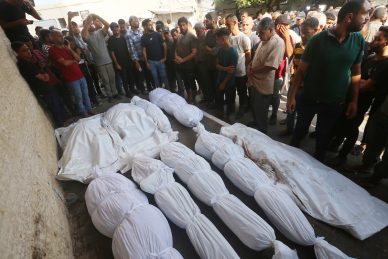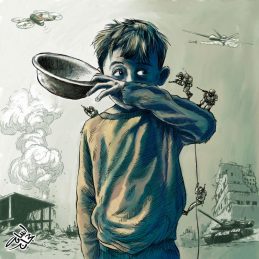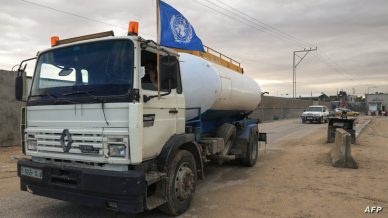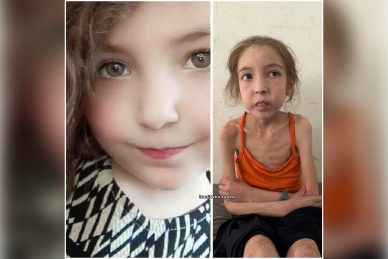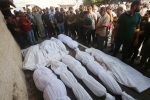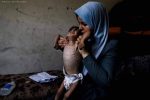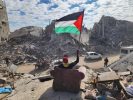GAZA, (PIC)
“The most important thing is to feed my kids — even if it’s just bread and oil,” says Umm Luay Jundiyah, as she lays out a piece of dry bread on an old blanket inside a communal shelter in Gaza.
In the city of Hashim, securing a single meal is no longer a daily task — it has become a true battle. Supply lines have been cut, aid is scarce, and the world’s voices are silent except for hollow statements of solidarity.
“Every day I stand in line at the bakery from dawn, and sometimes I come back with nothing. Bread has become like gold,” says Mahmoud Abu Al-Sheikh, a young man displaced from Beit Hanoun, to the Palestinian Information Center.
Childhood under siege
In one corner of a school-turned-shelter housing hundreds of displaced families, ten-year-old Malak Ahmad Al-Nabih draws on a crumbling wall using a piece of charcoal. Her drawings are not of flowers or kites — but of a warplane and a mother crying beside a body.
“Every day we hear planes. We get scared, but there’s nowhere to run,” says Malak.
Schools have been closed for months, but the children are still learning — how to hide under tables, how to run to safer areas, and how to hold back their tears so their mothers won’t worry.
Dignity hanging on laundry lines
On a street in Nuseirat refugee camp, Abu Raed Mushtaha has reopened his sewing machine atop the rubble of his destroyed shop.
“We sew for people for free. No one has money, but we still need clothes and warmth.”
Life continues, but nothing about it is normal.
Women hang clothes on downed power lines. Children play atop the ruins. Men guard their homes not from airstrikes — but from looters.
The inner siege: When a person faces the world alone
The tragedy in Gaza is not just the destruction — it’s the silence.
“We don’t lack skill — we lack tools,” says Dr. Wael Imad, a physician in a field hospital. “We stitch wounds without anesthesia. We lose lives because a shipment of medicine didn’t arrive.”
Gazans feel surrounded not only by walls and tanks, but by international abandonment. “We’re no longer waiting for decisions. We’re just waiting for this catastrophe to end.”
Hope cannot be bombed
Despite it all, the spirit remains unbroken.
Some families hold prayer circles; others tell stories to their children. Some have started planting vegetables on rooftops. Others organize soccer matches for children in school courtyards.
“We don’t want the world’s pity. We want it to hear us,” says Nadia, a young woman who writes in her diary daily to document both pain and hope.
Gaza is not dying — it is screaming.
Gaza is not the victim of fate — it is the victim of occupation, siege, and a world that chose to look away.
But what the world still fails to understand is this: a people who love life — despite everything — cannot be defeated.


